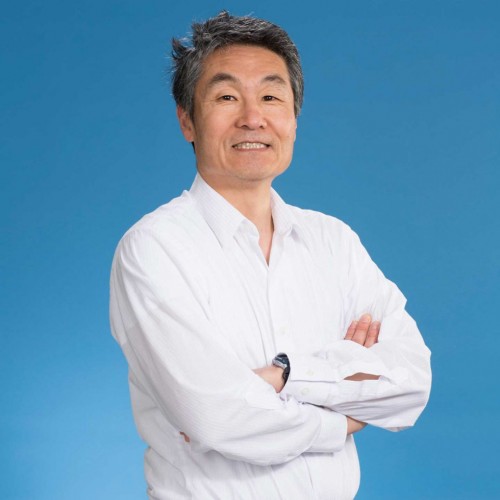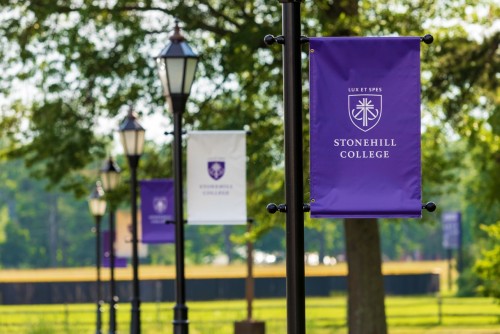The Economics of Success
Graduates of Stonehill’s economics program gain the experiences and highly coveted skill sets that open doors in a vast array of fields.
Whether you’re a corporate CEO or a professional athlete, there’s one skill set at the heart of success: the ability to assess quickly and act instinctively. Ann Furbush ’18 says that’s what she got from her Stonehill economics degree.
“The most valuable thing the Economics Department at Stonehill gave me was economic intuition,” said Furbush, who recently moved from working as a senior research analyst for an environmental and economics consulting firm to starting an environmental economics master’s degree at the University of Arizona. “I am able to think critically to develop holistic analytic strategies to explain real-world problems,” she said.
A Universally Valued Skill Set Leads to Opportunities in Many Fields
The best part for Furbush as well as her fellow economics majors is that these skills are universally applicable. At Stonehill, economics is undoubtedly one of the most versatile degrees available. Graduates go on to pursue careers and advanced degrees in a variety of different fields, including international affairs, law, finance, policymaking, nonprofits and government.
Just recently, economics major Michael Scannell ’87, a member of the Stonehill College President’s Advisory Council, left a position as senior vice president of global human resources for State Street Corporation to become the executive director of the Archdiocese of Boston’s Clergy Trust, which aids the health, well-being and retirement needs of diocesan priests.
“Economics doesn’t necessarily have a singular path, but I think there are many options,” said Akira Motomura, professor and chair of the Economics Department. “Econ graduates end up having a lot of value for the organizations they work for.”
Motomura, who has taught at Stonehill since 1995, says one reason for this is that graduates of the program are equipped with highly coveted problem-solving and analytical skills. These are honed in a variety of ways, from doing empirical research to gaining experience through internships arranged with the help of the Career Development Center and the Economics Department.
Economics doesn’t necessarily have a singular path, but I think there are many options.
Mentoring and Experiences That Support You Long After Graduating
While at Stonehill, Eric Dominguez ’19 said his professors and an internship at Merrill Lynch positioned him for success in his career in private banking at Brown Brothers Harriman.
“I had my first breakthrough into the world of finance via Professor Kazemi’s Money and Banking course,” he said. “That internship, along with the support and lessons from faculty such as Professor [Mark] Kazarosian and Professor Motomura, helped me secure an internship the following summer and a full-time role at Brown Brothers Harriman in New York City.”
Motomura said Dominguez’s collaboration with faculty speaks to another important characteristic of Stonehill’s Economics Department: the strong relationships that develop between professors and students.
“I had great relationships with professors,” said Celine Desantis ’18, who is now a Judicial Law Clerk at U.S. Bankruptcy Court, Western District of Wisconsin. “Stonehill instilled in me a sense of curiosity, which goes to Stonehill’s goal of educating the whole person.”
Economics graduate Dan Bonneau ’16, who is now pursuing a law degree at George Mason University after completing a doctorate in economics at West Virginia University, says that some of his best friends to this day are the professors he met while at Stonehill. “It all boils down to the access to professors,” he said. “They helped me find what was best suited for my goals and interests. There was never a time when I felt that the answer to a question was inadequate.”
Many graduates of the program have stayed in touch with the tightly knit department — and many still find themselves referencing materials from their economics courses.
“Just the other day, I used some of my notes from Professor [Mark] Kazarosian’s Public Sector Economics class to help me write a term paper for my Production Economics class,” Furbush said.
Desantis has also stayed in contact with her professors, particularly Motomura. “I’ve seen him since graduating, and we’ve gone out to brunch. That’s something you don’t see at other schools,” she said.
To those who decide to major in economics at Stonehill, Motomura believes that they will learn helpful ways of thinking about problems in society and will enjoy access to expansive career opportunities.
“You become a more informed citizen in politics and public life, whether you take one or two economics courses or a lot,” Motomura said. “The major gives you great skills with training that can take you a long way.”
Related
-
Request Information
Sign up now to be added to our mailing list, and we will show you how Stonehill could become part of your story.
-
Visit Opportunities
Our visit programs will help give you a better understanding of how Stonehill’s expansive leadership and experiential learning opportunities equip students for success in a rapidly evolving and globally competitive world.
-
Apply for Admission
Stonehill College provides an exceptional learning experience for both undergraduate and graduate students. We invite you to review the process, requirements and application deadlines for our entry options.



